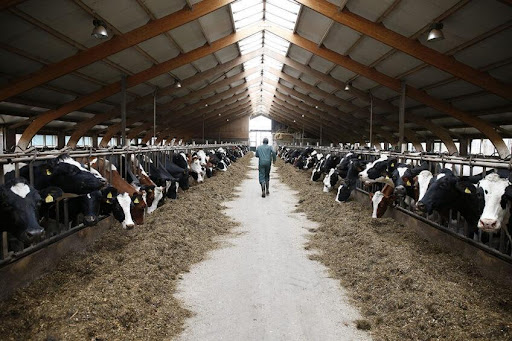Dairy farming is a crucial industry that provides dairy products to millions of people worldwide. One of the significant challenges that dairy farmers face is the management of diseases in their herds.
Antibiotics have been the go-to medication for many years, but their use is controversial due to their potential negative impact on human health and the development of antibiotic-resistant bacteria.
We will discuss the pros and cons of antibiotic use in dairy cows and alternative medicine options.
Pros of Antibiotic Use in Dairy Cows
Effective in Treating Bacterial Infections
Antibiotics are effective in treating bacterial infections in cows, such as mastitis, which is a common and costly disease that affects milk production. The use of antibiotics in cows can help to treat the infection quickly, reduce inflammation, and prevent further spread of the disease.
Improved Animal Welfare
The use of antibiotics in cows can also improve animal welfare. Antibiotics can reduce pain and discomfort associated with bacterial infections, thereby improving the overall health and wellbeing of the cow.
Cons of Antibiotic Use in Dairy Cows
Development of Antibiotic-Resistant Bacteria
The overuse and misuse of antibiotics in dairy cows can lead to the development of antibiotic-resistant bacteria. These bacteria can be challenging to treat and can pose a significant threat to human health.
Antibiotic-resistant bacteria can be transmitted from cows to humans through direct contact, consumption of contaminated meat or dairy products, or environmental exposure.
Negative Impact on Milk Quality
The use of antibiotics in dairy cows can also have a negative impact on milk quality. Some antibiotics can leave harmful residues in milk, which can cause health problems in humans if consumed.
The presence of antibiotic residues in milk can also lead to the rejection of milk by processors, leading to financial losses for the farmer.
Alternative Medicine Options for Dairy Cows
Herbal Medicine
Herbal medicine is an alternative to antibiotics in dairy farming. Herbs such as Echinacea, garlic, and oregano have been shown to have antimicrobial properties that can help in the treatment of bacterial infections in cows.
Probiotics
Probiotics are live microorganisms that can help to promote gut health in cows. They can also help to boost the immune system, preventing the onset of diseases. Probiotics can be given to cows in their feed or as a drench.
Homeopathy
Homeopathy is a holistic approach to animal health that uses highly diluted natural substances to treat illnesses. Homeopathy is a controversial topic in veterinary medicine, but some farmers have reported positive results in the treatment of diseases such as mastitis.
Ampicillin Trihydrate
Ampicillin trihydrate is an antibiotic that is commonly used in the treatment of bacterial infections in dairy cows. It belongs to the penicillin family of antibiotics and works by disrupting the cell wall of bacteria, leading to their death.
Conclusion
In conclusion, the use of antibiotics in dairy cows is a controversial topic. While antibiotics are effective in treating bacterial infections in cows, their overuse and misuse can lead to the development of antibiotic-resistant bacteria, which can pose a significant threat to human health.
Alternative medicine options such as herbal medicine, probiotics, and homeopathy can provide a viable alternative to antibiotics in the treatment of diseases in cows.

